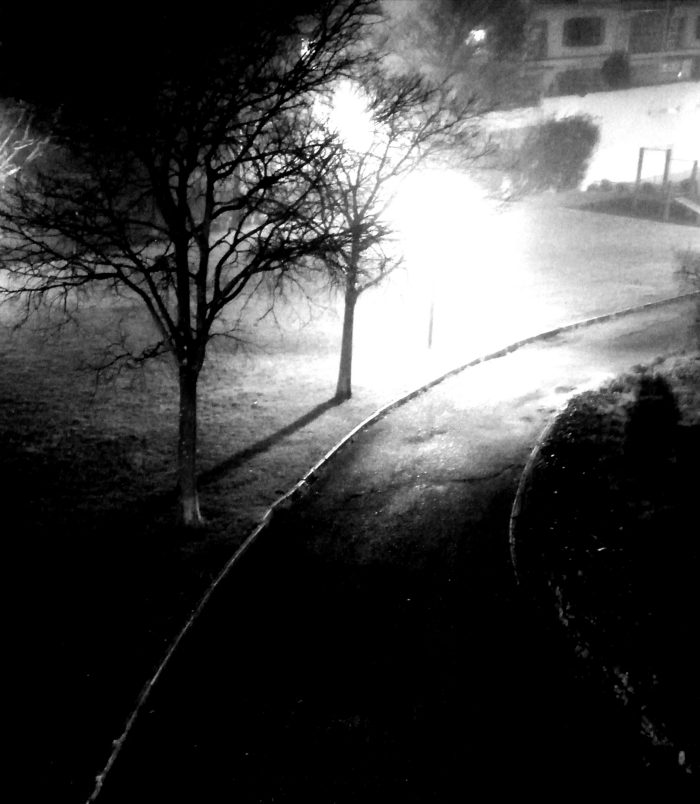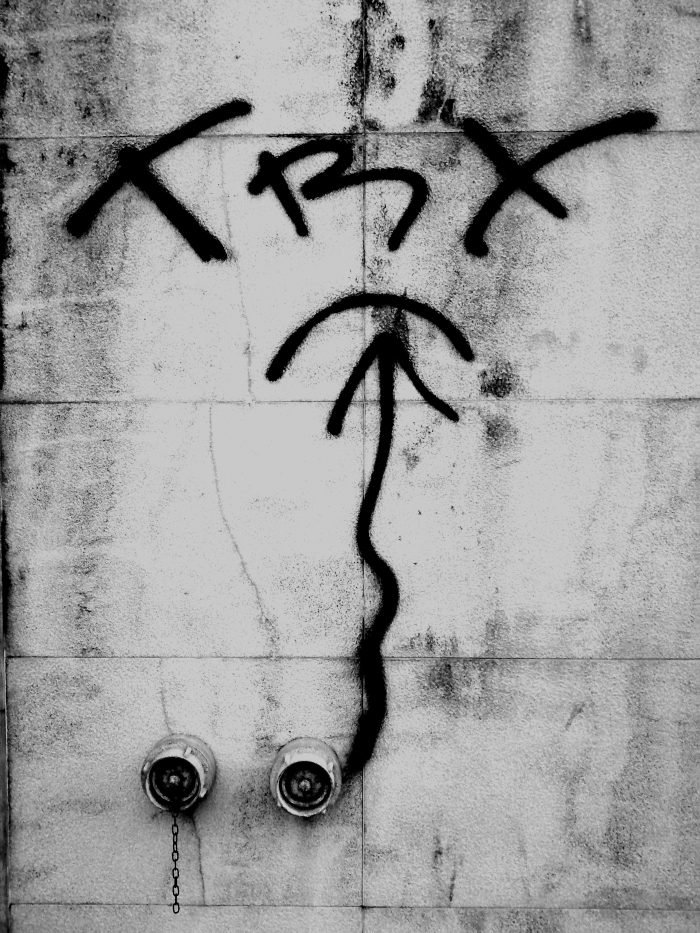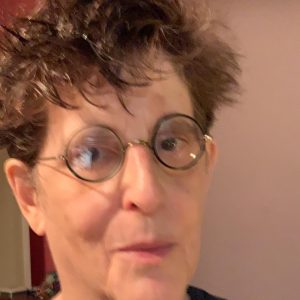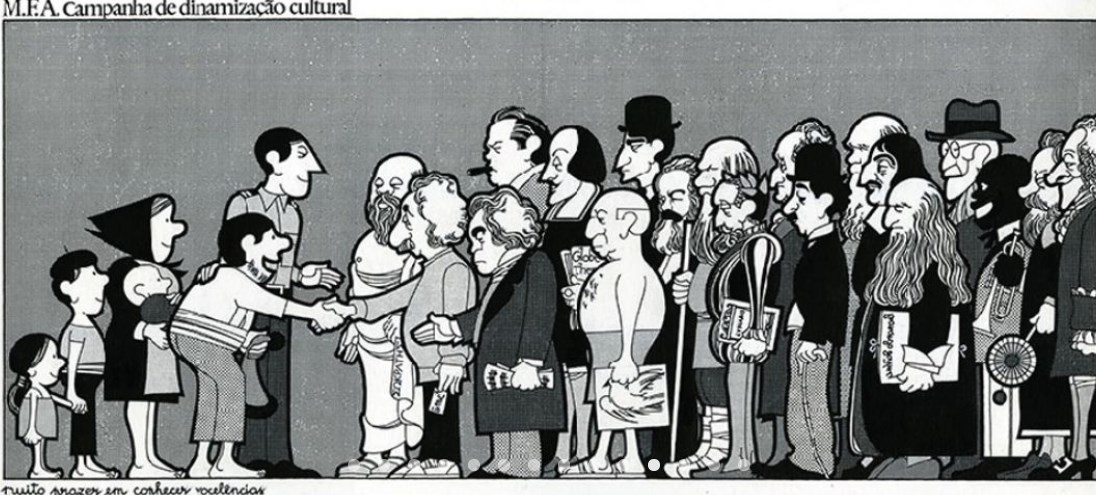
Is it raining yet? Is there a chance of rain? Has it rained? Is that smoke I see coming out of the chimney across the street? Is this a picture? Am I looking at something that isn’t moving outside my window? Is that rain? Is that the sound of dragons, dungeons, wildlife, air purifiers, birds, fate? What was the illness I didn’t know by name that made the man’s left eye open incompletely (the one who was begging paradoxically, using a plastic brochure stand as his lectern, like a preacher)? What was his soul affliction? (What’s mine?)
Didn’t it rain, children?
I ask you. I’m not in a hurry. The birds tweet and caw. So it’s unlikely to be a dream. The man dressed like a courtier in used or benighted brocade finery I saw crossing Broadway at 97th Street was strangely comforting. I wondered to myself that I was so moved. If I’d had my phone, I would have taken a picture, but I knew it would have been hokey and I was relieved not to have to face the dilemma.
I counted two phone booths, in “quick succession,” on a stretch of West End Avenue—unremarkable except that they were of almost museum quality: empty, almost pristine: no doors.
Lately I’ve been wondering at how crazy I used to be—especially when I wake in the morning. In fact some actions or moments one might think were too or indeed crazy. Sometimes I’m sorry you asked . . . did you? For all intents and purposes, I’m in shock and awe.
It isn’t just a narrative that will shake me.
What was it I think was really crazy? I mean the things nobody knows—not the obvious chain of forever indelible events that got me in the hospital.
Henry Kellerman was, to some extent, right—anger played a large part in whatever I did that was out of bounds. But it’s obvious that an ostensibly nice Jewish girl from a rabidly (sic?) American and patriarchal family of repressed and repressive Connecticut Jewish apologists with two codependent narcissists in array for parental absence was going to run into trouble—lacking in proprioceptic awareness early on, relying on the inescapable vacuity of chic and tragic aspirational bookish enclosures.
I was angry. I was romantic. I was intelligent. I was disconsolate. The lies were in the air, never mind guilt and mourning, and I had taken too much guff. So much acting out was not only plausible but, as time was passing, inevitable. The boys got to be boys. The girl didn’t even want to be.
I destroyed a footbridge one summer at day camp with some of the other girls—maybe it was already wobbly or missing a plank—but I was the instigator. The parents got a letter about it. No one confessed.
I walked into her dorm room to watch her sleep.
Let me see . . . there were many other things. Signs and seasons (מועדים לשמחה, חגים וזמנים לששון).
Hokey.
I didn’t have a psychoanalyst condensing the pith of psychopathology to a nutshell via the child star wisdom of Yiddish theater when I was growing up in Fairfield. But I had Yiddish theater.

Translation
But as for some other things you said
(Like I was beautiful), I’m going to act
As if it was the word of a quasi angel,
Perhaps the side-eyed jab jolie laide,
Message of the divine, a pick-up line,
Because I have no choice but to love
A meaning of the Hebrew מלאך, angel,
Messenger, flashing signs of a divine,
Whether that was wisdom or a fear of
The dark, provenance, kindness, fact.
No choice but to trust in a semblance
Of the self to walk into independence.
But I love another translation of angel
As hero, the word whose name is Ariel.
♣♣♣
After Stephen Sondheim Dies
Where did I come off, having this life and no other?
Did you think I would live in Fairfield and marry like my mother?
Only not as adventurous or good, affections begrudged.
Perhaps. Perhaps. There was always this mystical desire.
And the worry and the envy, the neglect mixed with fire.
In the fairest mirror of them all she couldn’t be judged.
I might only think each and every woman forbidden is a liar.
Maybe if I hadn’t lived through betrayals with my mother
I wouldn’t have found you or loved you like no other.
♣♣♣
Without
The parents are responsible for the son.
The brother is responsible to the brother.
The sister is loyal to the brother, the patriarch in training.
The justices are responsible to dark money.
The Global North is responsible for the Global South.
The virus is responsible, has fidelity, to its survival, the power exponential.
Collusion is a sleight of hand, more than meets the eye.
I am responsible to an old and unforgiving narrative
(For your information, reify)
That one turns a blind eye. One turns the eye blind.
Any dogma is a lie. Prepare like you’re hearing an implanted clock
That recites the hours in canned birdsong
The white-throated sparrow gets to you, even though
You can’t feel the heart of our soul as you would
If it were alive, as in nature. It’s still the music of four
Or five notes reverberating. And I am afraid to die without the muse,
Without the motive, without the rest stop, the interregnum.
♣♣♣
That’s Entertainment
Musical theater or, as they say, comedy
Wasn’t the maximalizing or proprietary
Answer. Neither was that hybrid liturgy
Of her youth, the youth of her imaginary.
Rock no. Pop not really. Folk on occasion.
She was a Broadway baby, within reason,
Translating the place she called her home,
Humoring herself enough to write a poem.
Food entertainment, entrainment of wind—
Sad facts of a city life where bodies sinned.
You’d think fascism made sense of our fall
If you didn’t allow for sloppy seconds at all.
♣♣♣
Lockdown Reading
Responses to Mrs. Dalloway can occupy.
Any internal monologue can do likewise.
We all might say our bodies have relived
The trauma of our singular stations alive.
But this one, being attached to the other
Well after the monument of engagement,
Concurs within vibrations, the nonhuman
World that hums in its divine indifference.
All the soundings, the trade shops, traffic
Like a Broadway production on the stage
Of our magnified urbanity—power, politics—
Are electrified in the air, trees discoursing
Among their own constituents, gratuitous,
And I myself didn’t realize the lead circles
As they carry the tolling loss, bells ringing.
I didn’t hear or see the air’s falling in time.
♦♦♦

Susan Pensak lives and works in New York. Her poems, translations, and essays have appeared in journals, books, and anthologies and have been translated into Hebrew and Portuguese. Among her current projects, she is completing an anti-epic poem cycle she calls “Azulejos; or, The Blue Far.”

